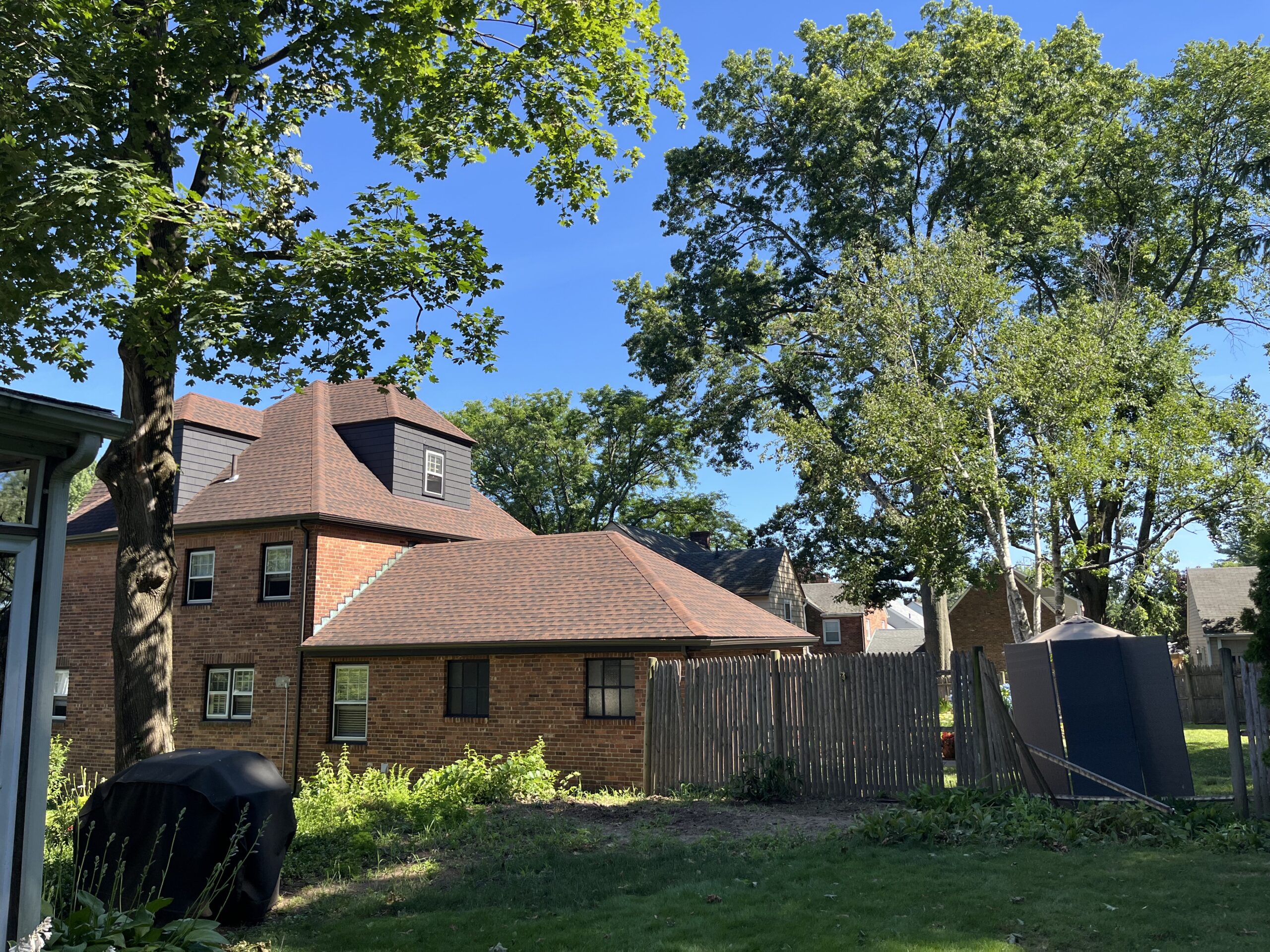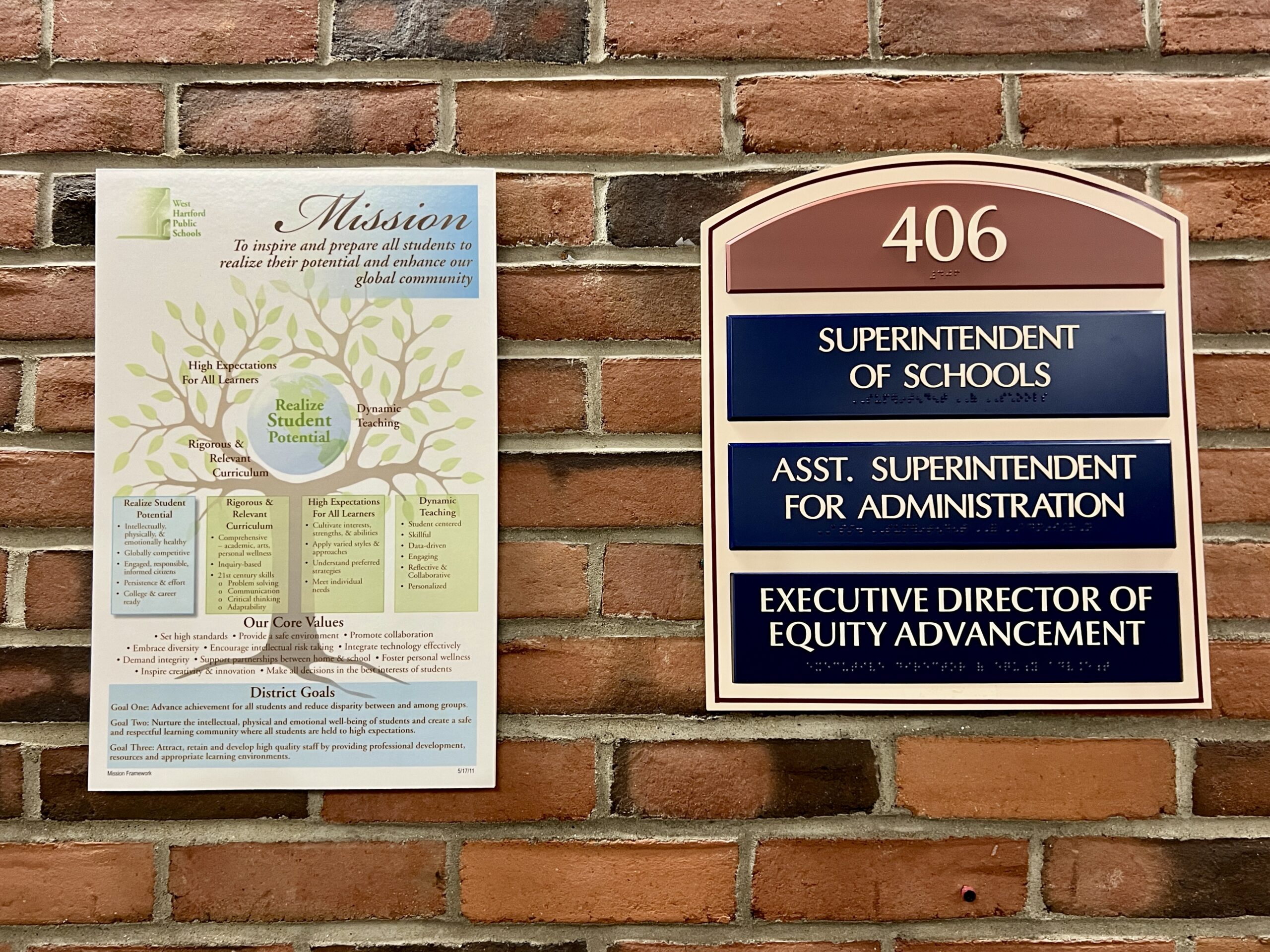Consumer Diary: Tree Damages Neighbor’s Property – Who Is Responsible

Audio By Carbonatix

Top branches of the tree at far left fell on my friends’ neighbor’s fence (far right), demolishing part of it and a shack. The question: Who’s liable for damages? Photo credit: Harlan Levy
Consumer columnist and West Hartford resident Harlan Levy has more than 20 years of experience writing stories about everyday experiences that anyone could encounter.

Harlan Levy. Courtesy photo
By Harlan Levy
The storm that hit West Hartford the weekend before last – like this past Sunday – caused widespread damage, including trees falling on neighbors’ property, which is exactly what happened to our friends and former neighbors, G and C.
The top of a medium-sized tree at the side of their house fell on their neighbors’ fence and a shack, destroying the shack and a large segment of the fence.
“We had a tree service clean up everything and price either taking it down or topping it,” G told me when I stopped to chat when I saw them outside as I was driving down our old street. “When the arborist came over to top off the tree, he said, ‘No, it’s still healthy, the roots are strong. Just top it.’”
Then the neighbors came over and said, “‘The tree must come down, because it’s going to fall on our house,’” G said. Our friends were annoyed but agreed. But the arborist, still on the scene, disagreed. “No. That tree is healthy and will live for years,” the arborist told them.
G and C then asked him to call the neighbors and tell them that they are misinformed, that the tree will not fall on their house, that the tree is leaning so that if it falls it will only fall back on our friends’ house.
After paying for the clean-up and related damage, our neighbors called their insurer, who said that if it’s on their property, their insurer must pay.
The next day, the neighbors’ lawyer sent our friends a letter threatening to sue them if they didn’t cut down the tree, ending by writing, “We’re doing this because we’re good neighbors,” G said, laughing.
Should our friends comply to avoid the threat? Or should they thrash it out in small claims court on the grounds that state law is on their side? [In small claims court the damages you can sue for are limited to $5,000 or less.]
I checked out the relevant statutes and cases. Here’s what I found from various sites and the state Office of Legislative Research, which states: “The law on liability for damage by falling trees is largely a matter of case law rather than statute. …. Generally, courts have found property owners are not liable if an otherwise healthy tree falls due to an ‘act of God’ [such as a big storm or hurricane]. But a landowner could be held liable if the tree’s condition (such as rot) posed an unreasonable danger and the owner knew or should have known of that condition and failed to eliminate the danger.”
Also, under Connecticut case law, you can legally cut branches off a tree growing on your neighbor’s property if they are encroaching onto your property.
Meanwhile the state legislature in 2023 considered a bill (Senate Bill 1061) that would shift the responsibility for removal of a fallen tree to the owner of the tree. The bill passed the General Assembly’s judiciary committee that year but died and wasn’t raised in this year’s legislative session.
NOTE: I told G and C that their neighbor has no legal basis for demanding their tree’s demise, and defending a suit requires no lawyer in small claims court, so why not fight?
NOTE 2: Did you notice that our U.S. Supreme Court issued several decisions last week affecting Connecticut and all other consumers – to their detriment, I’d say.
- On Friday the court overturned a 40-year-old legal precedent authorizing the U.S. Environmental Protection Agency to regulate air and water pollution without court intervention – affirmed in 70 subsequent decisions based on the case, Chevron v. Natural Resources Defense Council. The High Court’s 6-3 conservative majority ruled that only Congress and the courts can decide if a regulation is kosher whenever any party challenges it. In other words, any court that doesn’t like a regulation can reject it despite an agency’s scientific and technical expertise, and Congress can do the same.
- On Thursday last week the High Court paused EPA plans to limit air pollution created by power plants and factories in Western and Midwestern states that crosses state lines into Eastern states like Connecticut.
- Also on Thursday the court voided the Securities and Exchange Commission’s (SEC’s) use of administrative courts to fight securities fraud.
And more such regulatory cutbacks may be coming in healthcare, climate change efforts, emission controls, worker protections, and food and drug safeguards with a newly elected Congress, depending on how We The People vote.
Now you know.
NOTE: If you have a consumer problem, contact me at [email protected] (“Consumer” in subject line), and, with the power of the press, maybe I can help.
Like what you see here? Click here to subscribe to We-Ha’s newsletter so you’ll always be in the know about what’s happening in West Hartford! Click the blue button below to become a supporter of We-Ha.com and our efforts to continue producing quality journalism.



